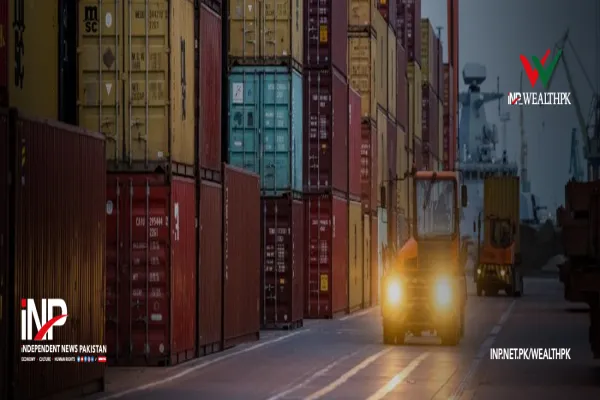i INP-WEALTHPK
Ayesha Saba
The second phase of CPEC focuses on enhancing people-to-people interaction to drive advancements in Pakistan's social sector. Key focus areas include education, vocational training, poverty alleviation, health and agriculture. Speaking to WealthPK, Dr Hassan Dawood Butt, former project director at CPEC and a senior adviser at Sustainable Development Policy Institute (SDPI), said Pakistan, with its rich pool of talent, seeks to benefit from China's advanced technological infrastructure and expertise. "In return, China sees an opportunity to expand its footprint in the region while contributing to Pakistan's socioeconomic development. This strategic partnership is not only about adopting best practices but also about creating a closer, shared future where educational excellence and technological innovation drive socioeconomic growth." He said that approximately 32,000 Pakistani students were studying in China, most of whom were on scholarships. "Almost one in three students is on a scholarship."
He said that Pakistan's investment in research and development had been relatively low, which has hindered the development of new technologies, products and solutions that could drive innovation and economic growth. "China's higher education system, which has seen remarkable progress and robust development in recent years, serves as a model for Pakistan's aspirations." "China has emerged as a crucial source of both technological advancement and technology transfer. Pakistan and China have agreed on the necessity to enhance student exchange programmes, industry-related skills development, and joint research projects to benefit from each other's experiences. The Higher Education Commission of Pakistan and China Association of Higher Education are playing a pivotal role in promoting higher education, exchange programmes and research culture in Pakistan," he said.
Meanwhile, talking to WealthPK, Prof Usman Mustafa, Joint Director at Pakistan Institute of Development Economics, said that as the world moves towards a knowledge-based economy, Pakistan and China are positioning themselves at the forefront of this transformation. "The primary reason for student unemployment in Pakistan is the lack of alignment between academia and industry. The academic community is often unaware of industry requirements. If they understand the needs of the industry, academia can better determine which courses to offer and which technologies to focus on," he emphasised. Usman said Pakistan and China were striving to strengthen the university-industry connections and launch student exchange programmes and joint research projects to learn from each other's experiences.
Credit: INP-WealthPk









